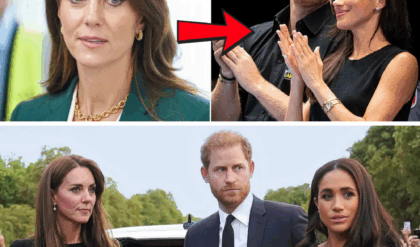The Walking Dead creator Robert Kirkman reflects on Frank Darabont faithfully adapting his comic book amid a network bidding war.
“Do there have to be zombies?” That’s what an NBC executive reportedly asked Frank Darabont, the Oscar-nominated writer-director of The Shawshank Redemption and The Green Mile, when the filmmaker pitched a live-action adaptation of Image Comics’ post-apocalyptic zombie comic The Walking Dead. The network, which envisioned the black-and-white horror comic book as a zombie-crime-of-the-week police procedural, was one of multiple networks that kicked the tires on a TV adaptation of the comic book from writer Robert Kirkman and artists Tony Moore and Charlie Adlard. The others: HBO and AMC.
“The honest truth is that Frank Darabont got The Walking Dead made. If Frank Darabont doesn’t go into House of Secrets [comic store] in Burbank and somebody recommends him a Walking Dead comic, I’m not sitting here right now,” Kirkman, who served as an executive producer on the television series, said during a panel at CCXP (via Collider).
 The Walking Dead – Season 1 – Photo Credit: Matthew Welch / AMC
The Walking Dead – Season 1 – Photo Credit: Matthew Welch / AMC
Launched in 2003, Image published 70 issues of The Walking Dead comic book by the time AMC greenlit a six-episode first season in March 2010. Before announcing TWD as its fourth original series following Mad Men, Breaking Bad, and Rubicon, the cable channel was in a bidding war with premium television network HBO, home to hit dramas Oz, The Wire, and The Sopranos.
“So, I wasn’t in a lot of those meetings. I made a lot of decisions and there’s some behind the scenes stuff that I probably can’t get into,” Kirkman said, “but a lot of those calls were me and my manager trying to navigate the waters of AMC and what they had promised Darabont, what was going on with that. So, I have a lot of visibility into the early days of production on that show, and I will only tell those stories in private.”
The Darabont-directed pilot produced by AMC made few changes to the first issue of Kirkman’s comic book, besides fleshing out police officer Rick Grimes’ encounter with fellow zombie apocalypse survivors Morgan and Duane Jones. While the season would make some deviations from the comic — including a standoff with the Vatos, an episode that marked Kirkman’s first teleplay credit on the series — Kirkman noted AMC’s Walking Dead was more faithful than most television adaptations “because Walking Dead was a very desired project and there was kind of a bidding war between HBO and AMC that was happening.”
“And because of that bidding war, AMC and HBO kind of got into a competition of, ‘We’ll give Robert this.’ ‘No, we’ll give Robert this.’ ‘No, we’ll give Robert this.’ ‘No, we’ll give Robert this,’” Kirkman said. “We just kept going, ‘Well, HBO gave us this,’ and then AMC would go, ‘All right.’ And then to HBO, we’d be like, ‘AMC gave us this,’ and HBO’d go, ‘All right.’”
“I kept getting more access, more control, more involved in the project until I was in the writer’s room, I was full EP, I was with everybody making casting decisions,” he continued. “I was fortunate that those two places wanted it. And if I hadn’t had that, one of those two places probably would have been, ‘I don’t think we need this guy from Kentucky who’s never written television before. Maybe we’ll just go with the Oscar-winning director.’ Being in my own head and knowing what I know about Walking Dead, I was the guy that knew the most, I was pretty valuable in that room.”
Kirkman added, “I understand from their perspective how crazy the creators and authors and people seem. And so I can see their perspective, but at the same time, Walking Dead was a pretty popular show. And I cannot tell you how many times I was in a production meeting or a casting meeting or sitting in the writer’s room going, ‘I did this in the comic, this is how the audience reacted. If we do this in the show, this is how people will react,’ and that stuff was very valuable. So, I would say that there is tremendous value to keeping the original authors and creators involved in every step of the way.”
The comic book creator addressed the AMC adaptation in 2010’s The Walking Dead #70, telling readers in the issue’s letters page he had “high hopes” for the just-announced TV series from Darabont and producer Gale Anne Hurd (The Abyss and The Terminator).
“I know you readers out there have concerns for adaptations of your favorite comics,” Kirkman wrote at the time. “Sometimes it works out, sometimes it’s a disaster. But I’m here to say that this one is looking good. It’s as faithful to the comic as I want it to be, meaning, it’s not a panel-for-panel adaptation, but it’s close, close enough that if you enjoy the comic, you’ll enjoy the show and there will still be surprises along the way.”
“I’d hate for you guys to be watching the show knowing that Rick is going to lose a hand next episode, or that Carol is going to die next season,” Kirkman continued. “There will still be surprises, which I think makes it The Walking Dead. If you knew what was coming, it would be boring.”
The Walking Dead pilot, “Days Gone Bye,” was watched by 5.3 million viewers when it premiered on Halloween night 2010 — the largest audience for any original AMC series. When counting 10 p.m., 11:30 p.m., and 1 a.m. airings, the episode’s cumulative total was 8.1 million viewers. “Days Gone Bye” launched with the highest delivery for any cable series premiere that year with 3.6 million viewers in the coveted adult 18-49 demo and spawned an 11-season, 177-episode run on AMC.





